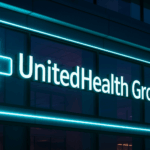Merck is committing to significantly bolster its U.S. operations with the establishment of a large-scale pharmaceutical manufacturing facility in Elkton, Virginia. As part of a $70 billion investment strategy, this new plant is poised to reinforce Merck’s manufacturing capacity. The decision to expand in the U.S. aligns with the ongoing national agenda to promote domestic pharmaceutical production and reduce dependency on imported drugs.
Merck’s planned facility in Virginia isn’t an isolated effort. Similar projects in states such as Delaware, North Carolina, and Kansas show a consistent expansion strategy. Previously, companies have faced challenges like dependency on foreign material and tariffs, influencing decisions to bring production stateside. This new development reflects shifting policies and economic strategies that emphasize U.S.-based pharmaceutical production.
How will this facility impact Merck’s production capabilities?
The new site in Elkton, covering 400,000 square feet, aims to create significant opportunities with 500 full-time roles. As a major hub for producing vaccines and critical medicines, it will also address active pharmaceutical ingredient production. The effort is anticipated to generate 8,000 construction jobs, supporting the local economy throughout its development phase. Once operational, it will aid in expanding Merck’s product innovation, such as small-molecule manufacturing and quality testing.
What role does policy play in fostering pharmaceutical innovation?
The facility’s inception comes at a time when the U.S. administration emphasizes the importance of “Made in America” pharmaceuticals. This policy encourages innovation within American borders while ensuring quality for consumers. Sanat Chattopadhyay expressed Merck’s eagerness to cooperate with government initiatives, saying,
“We always will work with the U.S. administration to make sure that we remain, in America, a prime leader in innovation.”
This sentiment is further echoed by Robert Davis, Merck’s CEO, who remarked on the significance of this development by stating,
“The investment helps advance our goal of providing new, innovative treatment options for people facing serious health challenges.”
The expansion dovetails with new tariffs encouraging domestic drug production. Former president Donald Trump has pointed to competition with China as a challenge that must be addressed through increased local manufacturing—a sentiment driving legislative efforts to realign the pharmaceutical supply chain. Trump claims, “I’m putting tariffs on pharmaceuticals, unless they’re made here, they’re all coming back.”
As part of the broader initiative to lead in life sciences, Virginia Governor Glenn Youngkin called the expansion a transformative move for the state’s economy, cementing Virginia’s standing in advanced manufacturing. Merck’s expansion alone could lead to the creation of nearly 48,000 construction-related jobs across the U.S. by 2029. The facilities are expected to be fully operational by 2030.
While the decision marks positive momentum toward domestic pharmaceutical growth, it also highlights challenges such as supply chain dependency and costs associated with local manufacturing. Nevertheless, by emphasizing domestic production, the initiative aims to position Merck as a central player in biopharmaceutical innovation within the U.S.










